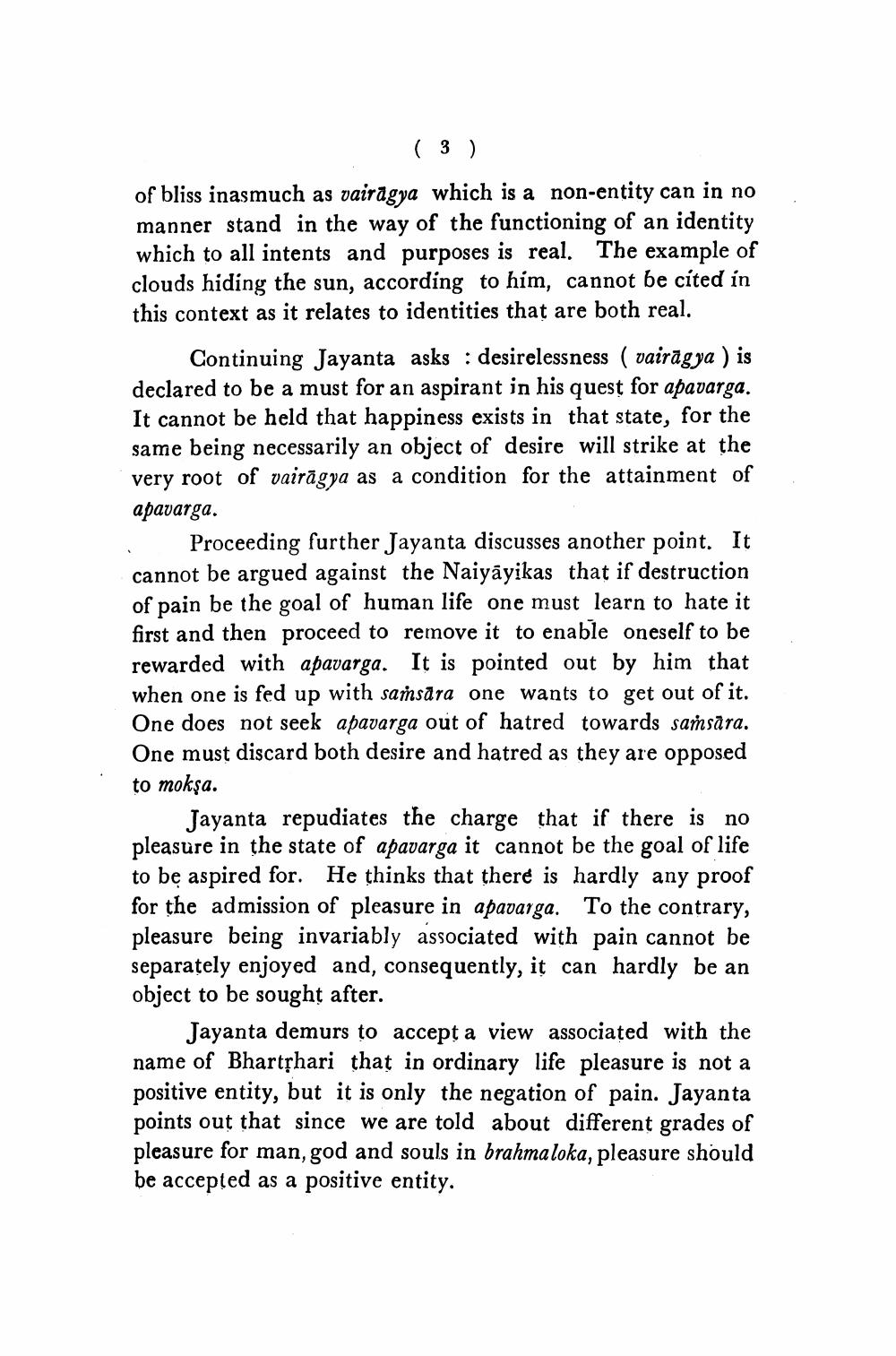________________
(
3
)
of bliss inasmuch as vairāgya which is a non-entity can in no manner stand in the way of the functioning of an identity which to all intents and purposes is real. The example of clouds hiding the sun, according to him, cannot be cited in this context as it relates to identities that are both real.
Continuing Jayanta asks : desirelessness ( vairāgya ) is declared to be a must for an aspirant in his quest for apavarga. It cannot be held that happiness exists in that state, for the same being necessarily an object of desire will strike at the very root of vairāgya as a condition for the attainment of apavarga.
Proceeding further Jayanta discusses another point. It cannot be argued against the Naiyāyikas that if destruction of pain be the goal of human life one must learn to hate it first and then proceed to remove it to enable oneself to be rewarded with apavarga. It is pointed out by him that when one is fed up with samsāra one wants to get out of it. One does not seek apavarga out of hatred towards saṁsāra. One must discard both desire and hatred as they are opposed to mokşa.
Jayanta repudiates the charge that if there is no pleasure in the state of apavarga it cannot be the goal of life to be aspired for. He thinks that there is hardly any proof for the admission of pleasure in apavarga. To the contrary, pleasure being invariably associated with pain cannot be separately enjoyed and, consequently, it can hardly be an object to be sought after.
Jayanta demurs to accept a view associated with the name of Bhartphari that in ordinary life pleasure is not a positive entity, but it is only the negation of pain. Jayanta points out that since we are told about different grades of pleasure for man, god and souls in brahmaloka, pleasure should be accepted as a positive entity.




